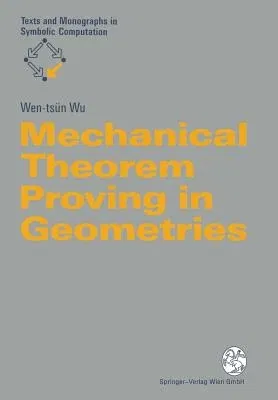Wen-Tsün Wu
(Author)Mechanical Theorem Proving in Geometries: Basic Principles (Softcover Reprint of the Original 1st 1994)Paperback - Softcover Reprint of the Original 1st 1994, 14 April 1994

Qty
1
Turbo
Ships in 2 - 3 days
In Stock
Free Delivery
Cash on Delivery
15 Days
Free Returns
Secure Checkout
Part of Series
Texts & Monographs in Symbolic Computation
Part of Series
Texts and Monographs in Symbolic Computation,
Part of Series
Texts and Monographs in Symbolic Computation
Part of Series
Edition Bohlissimo
Print Length
288 pages
Language
English
Publisher
Springer
Date Published
14 Apr 1994
ISBN-10
3211825061
ISBN-13
9783211825068
Description
Product Details
Author:
Book Edition:
Softcover Reprint of the Original 1st 1994
Book Format:
Paperback
Country of Origin:
US
Date Published:
14 April 1994
Dimensions:
24.41 x
16.99 x
1.65 cm
ISBN-10:
3211825061
ISBN-13:
9783211825068
Language:
English
Location:
Vienna
Pages:
288
Publisher:
Series:
Weight:
494.42 gm

